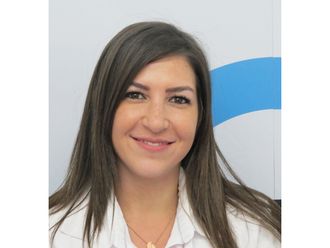Though Atrial Fibrillation (AF) is an affliction of the aged, a Dubai-based doctor says it is also affecting the young due to excessive drinking and bad diet choices.
He cites the case of a young man in his 30s, an expatriate, who was diagnosed with a quivering heart thanks to his habit of downing three to four liters of cola drinks a day. Studies show that drinking more than 3 cups of coffee, 1 can of an energy drink or a cola can quicken the heart beat and make one anxious and jittery.
Dr Brajesh Mittal, interventional cardiologist, Al Garhoud Private Hospital, says the erratic beating of the heart usually happens due to ageing, but there are other underlying factors as well. “It could be due to hypertension (high blood pressure), high thyroid levels, severe lung disease and acute alcoholism,” he says. (High thyroid levels mean that the gland is producing too much of the hormone (which is important for regulating the body’s metabolism. High levels of the thyroid hormone leads to nervousness, high BP and an increased heart rate).
AF, says Dr Mittal, can also occur without any reason sometimes and people remain unaware that they are in danger of a stroke or a heart attack.
The sudden irregular beating of the heart can make one feel dizzy, breathless and sometimes cause pain in the chest. “You could have a fatal heart attack because of the sudden onset of Atrial Fibrillation,” he says. “The heart begins to beat so rapidly that the pumping mechanism is thrown off balance. In such a scenario, you could not make it to the hospital too late given the sheer urgency of the problem.”
A man in his early 60s wasrecently picked up by a helicopter and brought to the hospital as his heat was beating so erratically that there was no time to be lost.
People who are not treated in time for AF run the risk of stroke or venous thromboembolism, says Dr Mittal.
A stroke, or a brain attack, happens when blood supply to the brain is cut off for some time. A stroke occurs among AF sufferers because the atria, or the upper chambers of the heart, are not able to pump blood properly because of the erratic beating. “That leads to pooling of the blood in the atria, causing blood clots,” says Dr Mittal. The clots stop the flow of blood, and if the blood supply is cut off for several hours or more to the brain, the brain cells die.
Venous thromboembolism happens due to a blood clot forming in the large veins of the leg and thigh. Though this is common among those over the age of 60, it can occur at any age, because of various reasons such as sitting for prolonged periods, as in a long-haul flight, or due to smoking, obesity, pregnancy, using birth control pills or genetics.
The blood clot breaks off and moves through the bloodstream and can get stuck in the brain, lungs, or the heart, causing severe damage.
Dr Mittal says the way to control AF is by electric shock or defibrillation and medication. It is crucial the patient be given blood thinner to disperse the clot or prevent it from forming.
The demographic in the region is changing and the population in the Gulf Cooperation Council (GCC) states is slowly ageing, Dr Mittal points out.
Studies have shown that those suffering from diabetes and obesity are at high risk of atrial fibrillation.
According to health authorities in the UAE, 12 percent of children are obese and 21 percent are overweight, which is a big risk factor for developing Type 2 diabetes in adulthood. Type 2 diabetes, usually affects adults, but alarmingly, it is now afflicting the young as well.
Dr Mittal recommends that if you suspect you have an irregular heartbeat, it is best to get professional help quickly.
“AF will impair your quality of life,” he says, because of breathlessness and the palpitations. “You will not be able to work. It needs to be brought under control.”











